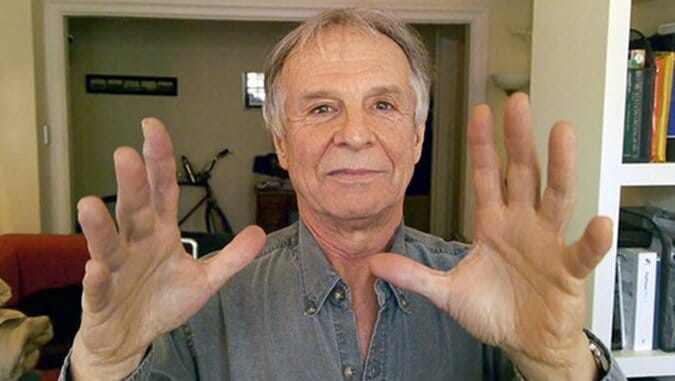One Cut, One Life

Who “owns” a death? And what is owed to the dying, particularly if their exit is a slow or managed one? Those heavy philosophical questions hang over One Cut, One Life, a documentary from Lucia Small that grapples with loss, love and the boundaries of intimacy. Ostensibly the movie’s subject is Ed Pincus, Small’s mentor and former collaborator, and one of the grandfathers of first-person nonfiction film. But with a pair of separate, jarring tragedies in Small’s own life, One Cut, One Life takes on the contours of a cinematic disquisition on mortality. It is a complex, intimate film about some of the conversations in life we typically avoid the most.
Pincus, who founded the MIT Film Lab in the late 1960s, doesn’t have a lot of directorial credits on popular databases like IMDb—his two best known works are probably 1967’s Black Natchez, a slice of cinéma vérité which documents an attempt to organize an African-American community in the Deep South during the height of the Civil Rights Movement, and Diaries (1971-1976), which saw release in the early 1980s. The latter is a punishingly personal account of Pincus’s marriage; somewhat akin to John Cassavetes’ work, it digs into characteristically suppressed feelings with a total lack of regard for vanity, though the raw, unflinchingly candid and coolly articulated discussions of emotions and personal foibles leave less room around the edges for viewer interpretation.
Both of the aforementioned movies are glimpsed briefly in clips in One Cut, One Life, but it’s the savvy juxtaposition of just a small amount of material from Diaries that most cuts to the bone, because it thematically dovetails with one of the film’s significant subplots. No matter how old one gets, marriages and other long-term relationships are still an ongoing negotiation; they may appear fixed, but their borders are porous and variable, subject to the whims of new, unanticipated feelings. And One Cut, One Life puts a pair of fascinating relationships under the microscope.
Co-directed by Small and Pincus, One Cut, One Life opens with an explanation of Pincus’s diagnoses of both Parkinson’s Disease and, later, MDS (from which he died, in 2013 at the age of 75). Reconnecting with Small and documenting his health ailments is a way, he asserts, to take control of the situation and his (likely, it seems) impending death. And so a good portion of the movie unfolds in handheld close-up, with the two filmmakers taking turns interviewing one another—as well as Ed’s wife Jane (one of the co-authors of the groundbreaking Our Bodies, Ourselves), who is roundly displeased with the idea of sharing however much time her husband has left. Indeed, much of the film revolves around this awkward triangle and its blurred lines of intimacy. Ed and Jane share two kids, three grandchildren and a lifetime together, but in their utter devotion to nonfiction cinema, Ed and Lucia worship at a church that rather excludes Jane.